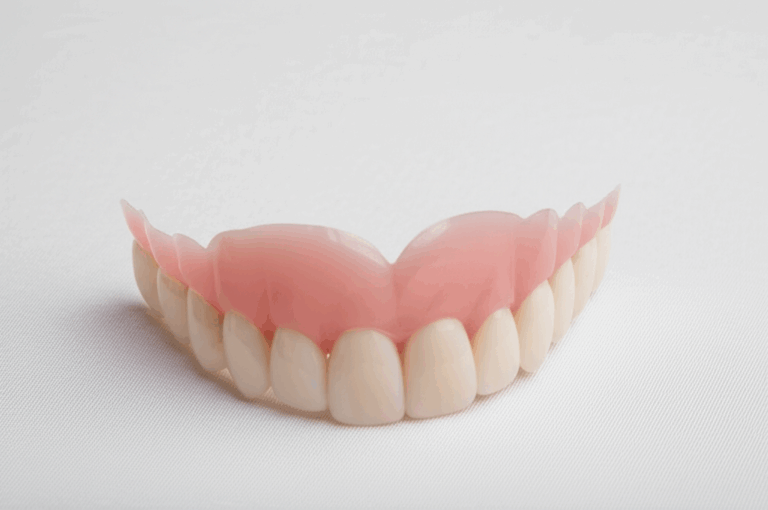
How Much Do Dentists Make Starting Out? My Honest Guide to Entry-Level Dentist Salaries
Table of Contents
- Where You Work: Geography’s Big Influence
- Type of Practice: Private, Corporate, or Public?
- Generalist or Specialist? The Salary Difference
- What Training and Experience Mean for Pay
- Negotiation: Why It Matters More Than You Think
Introduction: My Journey to Understanding New Dentist Incomes
When I first finished dental school, “How much do dentists make starting out?” was the question always in my mind. Student debt was scary (and it still is for a lot of new dentists). The idea of making good money kept me going through tough classes and long hours, but I wanted real answers—real numbers, not just people saying it would be okay.
I learned along the way that almost everyone—whether you’re thinking about dental school or just got your license—wants to know what those first paychecks really look like. So, let me share what I found out, both from my own life and from looking at lots of reports, surveys, and talking to friends.
National Averages: What I Learned About Starting Salaries
When I started looking for jobs, I saw that pay could be pretty different depending on the job. After checking numbers from the American Dental Association (ADA), Bureau of Labor Statistics (BLS), job recruiters, and chats with friends, here’s what I found:
- General Dentist (1st year): The average for new dentists is about $130,000 to $160,000 a year.
- Wider Range: Some offers are as low as $100,000 while others can be $200,000+ for new grads.
- Practice Type Differences: Working at a private office sometimes pays more, but might be less steady. Jobs in corporate dental groups often give more reliable pay and better benefits but might start a bit lower.
But these are just rough numbers. What you actually make depends on a bunch of things I wish someone had explained to me right away.
Factors That Shape Your First Paycheck
The number on your first job offer isn’t random. Here are the main things that make a big difference.
Where You Work: Geography’s Big Influence
To keep it simple, your location can really change your pay. When I looked for jobs, small town places usually offered higher starting pay—sometimes $140K – $190K or more—because those spots really need dentists. The catch? Fewer people around might mean fewer patients later, and life can feel kind of quiet.
Big cities (like Los Angeles or New York) sound fun, but there’s more competition so starting pay might be lower—think $120K – $160K to start. Some states like North Dakota, Connecticut, or Alaska give new grads great starting deals because they need dentists badly.
Type of Practice: Private, Corporate, or Public?
I spent a lot of time thinking about whether to work in a small office or a big company:
1. Private Practice Associate
Private offices usually pay you a small base salary plus a slice (25–35%) of what you make for the office. If you work hard and lots of patients come in, your pay can jump fast. I know grads who made $180K or more their first year by really hustling. But slow days mean lower pay.
2. Corporate/DSO (like Aspen Dental, Heartland Dental)
Big dental chains seemed good when I wanted a steady job. They offer good starting pay ($120K–$160K), regular benefits, and a steady stream of patients. You don’t get as much freedom in how you work, but if you need benefits or help with loans, it can be worth it.
3. Public Health/Government
Some of my classmates worked for Veterans Affairs (VA) or city health clinics. Pay was lower ($80K–$120K), but the benefits—like health insurance, paid time off, retirement plans—were strong, and they even help pay back student loans.
Generalist or Specialist? The Salary Difference
Regular dentists (general dentists) make what’s average for new jobs. But if you finish more school to be a specialist, pay jumps up:
- Orthodontists: Usually $200K–$300K+ to start.
- Oral Surgeons: Often $300K–$500K+ right away after training.
- Endodontists and Kids’ Dentists (Pediatric): $150K–$250K+ or more.
Specialty takes more years (and more debt), but those numbers can be much higher than for general dentists. I’ll never forget seeing an oral surgeon’s first job offer—it was four times mine as a new general dentist!
What Training and Experience Mean for Pay
Dentists who do a General Practice Residency (GPR) or Advanced Education in General Dentistry (AEGD) don’t usually get paid a lot more right away—in fact, you just get a small check for the year ($40K–$70K). But what you learn helps you get better jobs later and move up faster.
If you worked as a dental assistant or hygienist before, you might get a little more pay because you know your way around the office.
Negotiation: Why It Matters More Than You Think
I learned the hard way that negotiating isn’t just about asking for more money. It’s about knowing what’s really in the deal. When you get a contract, pay attention to:
- How you get paid: Is it just salary, about what you bring in for the office, or both?
- Benefits: Things like health insurance, retirement plans, training money, malpractice insurance, and paid days off can add up to $10K–$30K or more in your first year.
- Malpractice insurance: Some places don’t pay for this, so ask.
- Contracts that stop you from working nearby later: Read these closely.
When I started looking at everything, not just pay, I realized for me steady work was more important than big money that might be up and down.
The Debt Dilemma: Balancing Loans and Income
Nobody gets out of dental school with no debt, unless you’re really lucky or your family is rich.
Average new dentist debt: $290,000–$320,000
Seeing all those zeros on my loans made me nervous, even though I had a decent job offer. What helped was looking at how my loans compared to my pay. If you owe more than you make in a year, you’ll need a plan. Once you have a job, you can look at refinancing or loan programs.
Some public jobs help you pay back loans, or even wipe some out for working in places that really need you. That’s money in your pocket—sometimes $20,000–$50,000 a year—to help with loans. Private and corporate dental jobs might give signing bonuses or help pay for moving, but don’t usually match those loan payback programs.
Picking the right place to work changed a lot for me. I used payment plans that matched my pay until I could put more money toward my loans.
Beyond Year One: Where Dentist Incomes Go Next
If you’re worried that your first job won’t pay for your life, remember—dentistry is a long-term game.
Pay Bumps: In a couple years, most dentists I know got pay raises as they got better and made a bigger list of regular patients. It’s normal to see a 20–40% jump in a few years, especially at private offices.
Owning a Practice: The biggest pay raise I saw was when dentists bought or started their own office. There’s more risk (you have to pay for supplies, pay staff, rent, buy stuff like equipment or work with a good china dental lab), but after a few years, owners can make $220K–$300K or more if the office is busy.
Learning More Skills: The more you know—like implants, braces, or new tech—the more you can do, and the more you can make. Friends of mine made extra money by learning new treatments or working with dental ceramics labs to give patients things other dentists couldn’t.
How I Maximized My Starting Salary
Nothing magic here, but here’s what really worked for me (and could work for you):
1. Smart Job Hunting
I researched which states need dentists the most and talked to dental recruiters who know where new grads are in demand. It took extra time but was worth it.
2. Build Your Skills
Doing a GPR/AEGD or learning to do special treatments (like implants or using new digital tools) made me stand out. That helped me get better pay and do more kinds of cases.
3. Negotiate Right
Know what you’re worth. When talking job offers, I brought up salary info, how pay worked, and what other perks mattered to me.
4. Make Connections
Some of my best job offers, mentors, and patient tips came from meeting people at events, clubs, and even on message boards.
FAQs: What New Dentists Always Ask Me
Q: Is dental school worth it with all the debt?
I think so, but only if you’re real about the early years and understand that the big payday is down the road. The first years, you’ll be paying off lots of loans. In 5–7 years, most dentists (who don’t spend like crazy) start making good money.
Q: Should I jump at the highest pay?
Not always. Look at benefits, how people treat you at work, mentorship, and how your earnings can grow. Some of my friends took big-money jobs they hated and left quick.
Q: Do specialists always make more?
They start higher after training, but they stay in school longer too. Some of my friends love being a regular dentist and still do great, especially when they own their office.
Q: Is rural or city better for new dentists?
It comes down to what life you want. Rural pays more at first and the jobs are easier to get, but you live in a smaller place.
Q: Can lab relationships help new dentists earn more?
Having a smart lab setup (with a good crown and bridge lab or digital lab) keeps your costs clear and lets you do things for your patients other dentists might not, which helps you make more.
Is Dentistry Worth It? My Final Take
The main thing I learned is dentistry can give you a nice income and actually feel good as a job—if you set honest goals and think long-term.
Will you be rich in your first year? Probably not. But if you are careful about where you work, keep learning, and take care of your student loans, you can grow into financial security and have a career that’s rewarding. The early years might be rough, but things get better with time, effort, and smart choices.
Still not sure? Remember: You’re not the only one with these questions. Ask around, learn as much as you can, and focus on building the kind of career (and life) you want. For me, it’s been worth it so far. I hope this helps you get started—one paycheck at a time.







